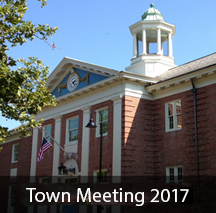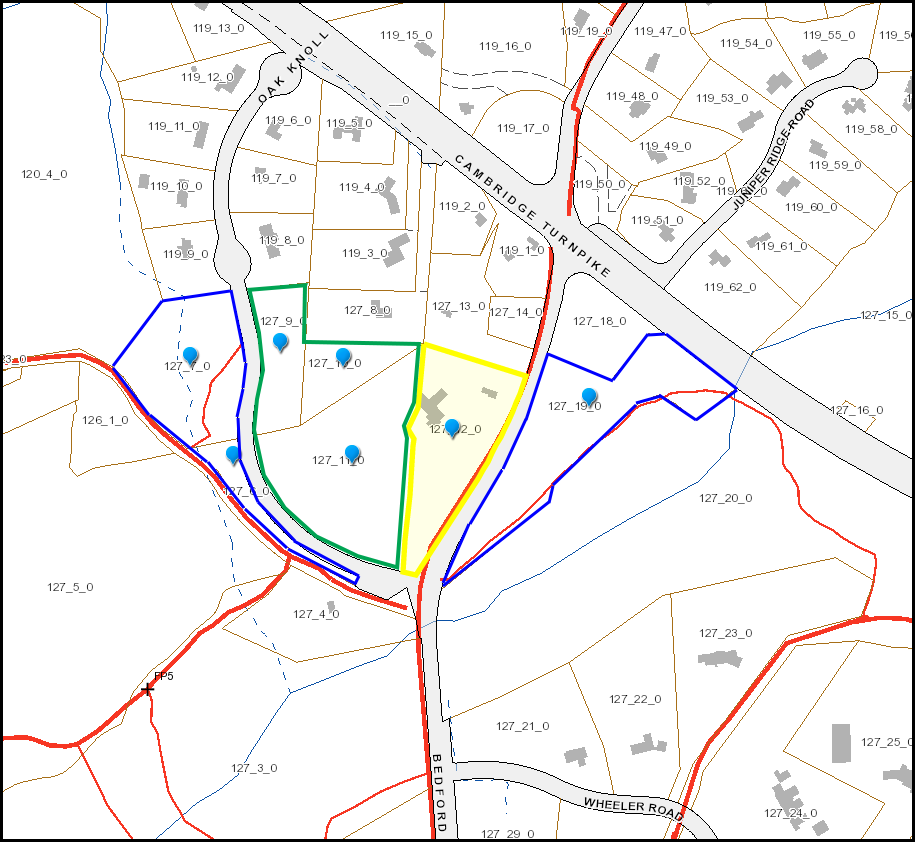Lincoln residents will be asked at Town Meeting to approve a total of $2 million for land purchase and construction that will yield the town’s first new athletic field in more than 50 years as well as new conservation land. However, because of the type of financing that’s being considered, the expenditure will not result in any additional tax burden.
The Rural Land Foundation (RLF) and the Birches School teamed up to buy the 16-acre Wang property off Bedford and Oak Knoll Roads in November 2016. The Birches School will use four acres (including an existing 12,000-square-foot house at 100 Bedford Rd.) for its new headquarters plus a public parking lot that will also serve the adjacent athletic field. Residents will be asked to approve the purchase of the other 12 acres using Community Preservation Committee (CPC) funds.
CPC funds come from a 3 percent property tax surcharge and a partial match funds from the state (26 percent last year). The fund replenishes annually by about $950,000, and the town proposes to borrow $1.3 million over 15 years against this income. Another $500,000 will come from the general balance. The purchase will have no impact on the town’s bonding ability going forward, according to an informational video about the project distributed by the Parks and Recreation Committee.
The total cost of $2 million breaks down to $800,000 for purchase of the land (three acres for the athletic field and nine acres for conservation) and $1.2 million for construction of the field. The town will also get a permanent easement on the parking lot that the Birches School will build—something that will save the town $500,000. Users of the field will also have access to a school bathroom.
Another benefit of the town acquiring the land is that it can be used as a “solar swap.” By adding new acreage to the town’s inventory of conservation land, it can take an equal amount out of conservation for a municipal array at the capped landfill.
The town’s current athletic fields on the school campus are in poor shape due to overuse and lack of irrigation. Assuming all goes as planned, the new field will be built by September 2017 and ready for use in August 2018. Conservation officials also plan to make trail connections from the new conservation land to adjacent parcels.
After the Park and Rec video was released, the committee answered questions posed by residents on LincolnTalk. Those answers are reprinted below.
Would putting synthetic turf in help with heavy field usage?
Yes, artificial or synthetic turf is much more durable than natural grass fields. Community Preservation Act funds, however, can’t be used to pay for an artificial turf field. There are also a number of growing concerns with artificial turf, including high temperatures for children, off-gassing of the materials as well as the fact that there are still ongoing maintenance costs. While cost savings have been highlighted as among the benefits of an artificial turf field, the life expectancy and costs savings for artificial turf fields are now being questioned.
Has anyone studied the projected traffic onto Bedford Road and Route 2?
Yes, Birches School and the Rural Land Foundation hired MDM Transportation to perform a traffic study of the area. They found that “the expanded Birches School and adjoining soccer field use will be accommodated along Bedford Road at operating levels that are well below capacity under full enrollment and during soccer field use periods (weeknights and Saturdays).” There will be a number of site improvements made to the area, including improving sight lines and widening the existing driveway to enable two exit lanes and one entry lane.
You mention that the Selectmen, FinComm, CapComm and School Committee are supporting this project. Is the Planning Board in support?
We specifically approached the Selectmen, the Finance Committee, the Capital Committee and School Committee for their support of the project, but did not ask the Planning Board. We, however, did receive site plan approval for the project.
Has the Chief of Police signed off on this project?
The police chief is aware of the project and has not expressed concern, although his formal approval was not part of the site plan approval process. The fire chief has signed off on emergency access to the property and our highway superintendent, and the town’s consulting engineer (not the project engineer) have reviewed our traffic study and are informing our site management plans.
Will there be any neighbors to whom the field and parking lot will be visible, who formerly saw only woods?
There is one immediate abutter, and we have worked closely with them to make sure that they are not negatively impacted, using landscape and fencing to ensure privacy. In addition, we met early on with the immediate neighborhood to not only share the initial announcement with them, but also to solicit their questions and concerns. The current site plan reflects their feedback.
The Carroll School on the Wayland/Lincoln border is creating new athletic fields. Is it possible to rent those?
The Carroll School will not be renting the fields to area towns or schools in response to neighborhood concerns.
Have you looked at any other single-family lots in Lincoln on which to build a field?
We have been actively looking for the past 15 years at all opportunities; however, for a number of reasons these other lots have not panned out. The Wang property at 100 Bedford Road works for several reasons, including access from Route 2 and the center of town; low impact on neighbors; and the partnership with the Rural Land Foundation, which makes the potential acquisition feasible since they are in essence providing the town with a bridge loan, giving us the time we need to examine the transaction in the Town Meeting framework; and the partnership with Birches School provides a number of cost savings related to the parking lot and restroom facility.
Why can’t the town build an athletic field on the flat lot abutting the school by the Smith building?
The agricultural field behind the Smith School is privately owned and mostly in conservation. Taking land out of permanent conservation designation is an extremely difficult process. It requires permission of the land owner and then involves finding a lot with comparable conservation value to swap. Approval from the Conservation Commission, Town Meeting and the Commonwealth is also required. In the 15 years that we have been searching, we have not been able to find a lot that would be large enough to accommodate a field of this size with adequate parking, let alone a flat, open parcel.










